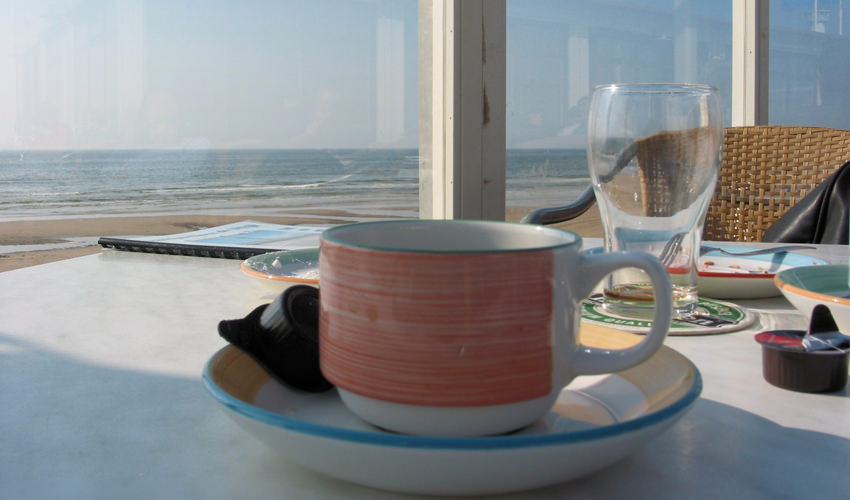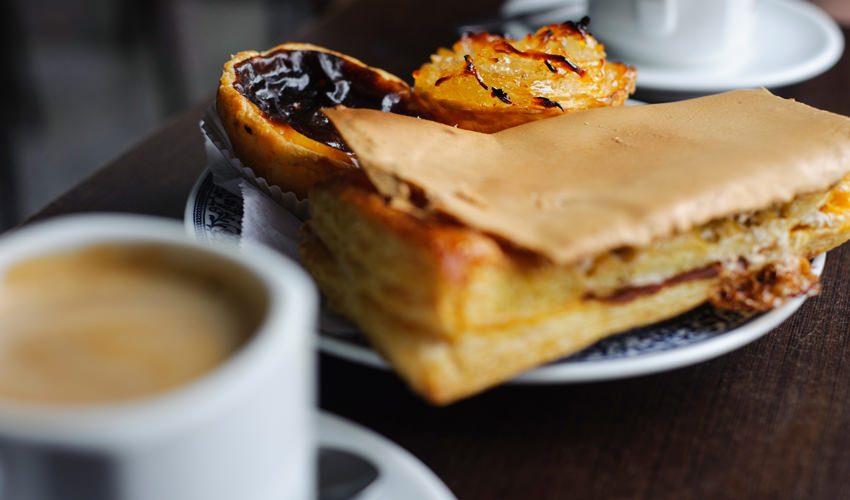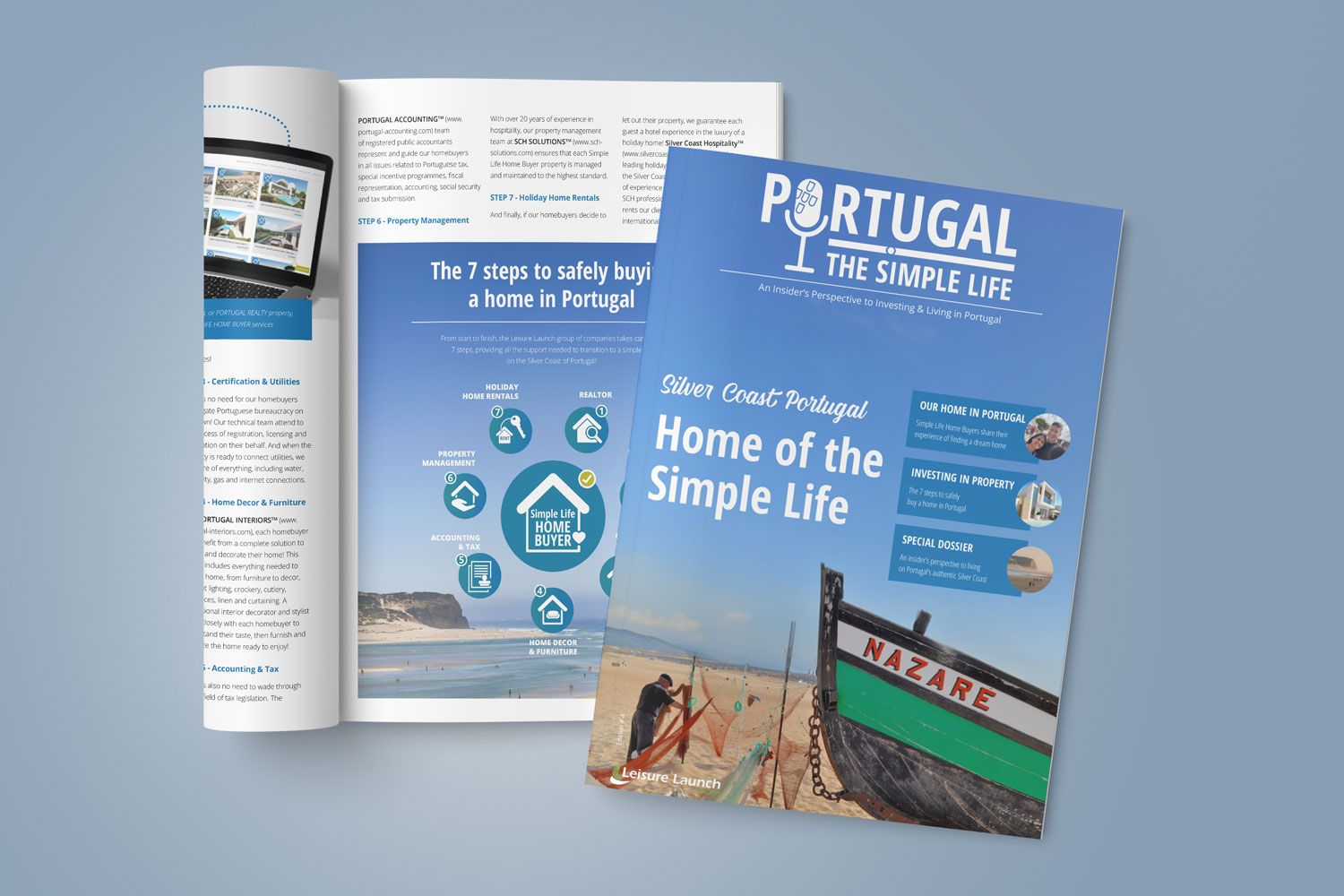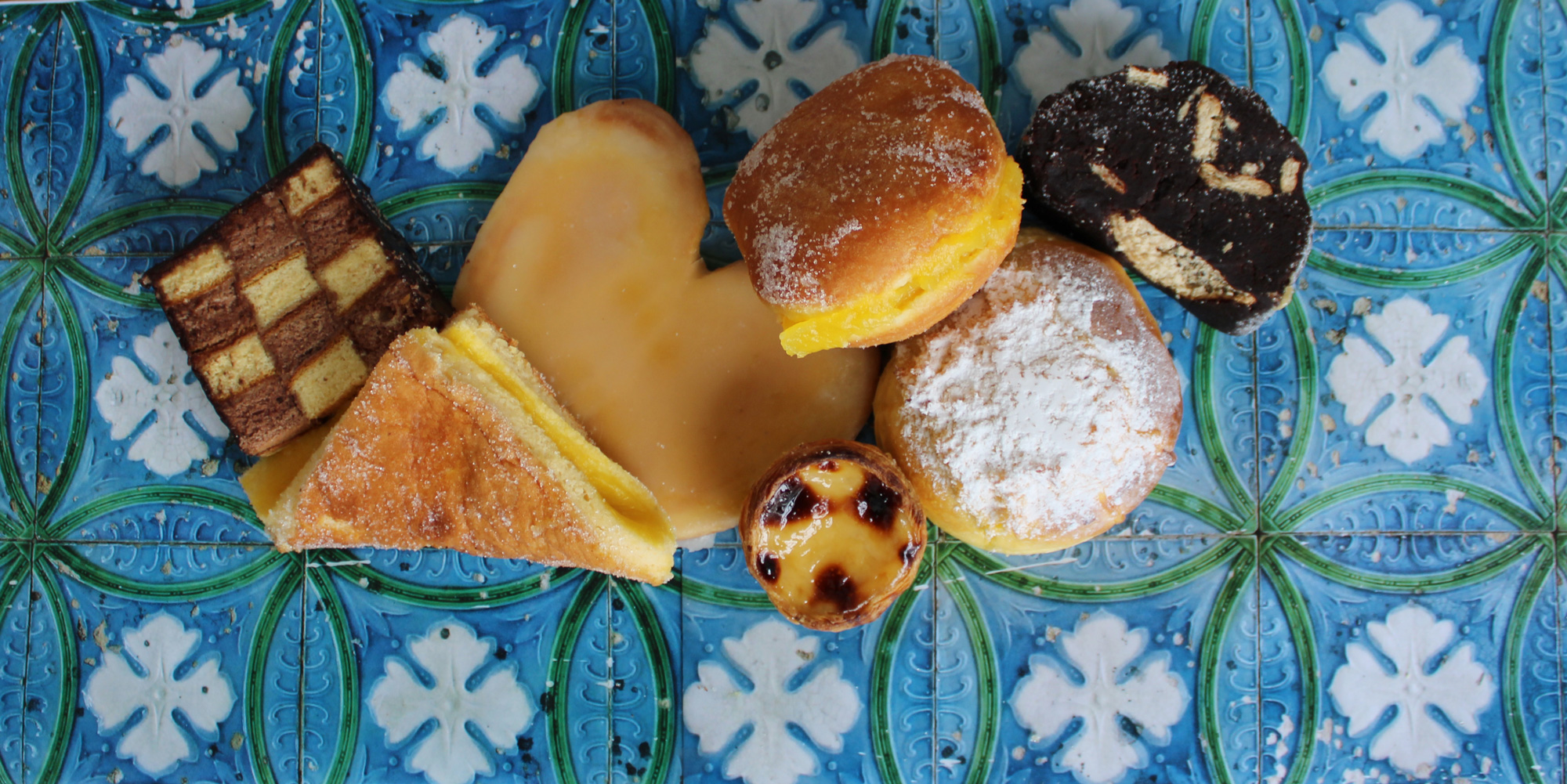Drinking coffee in Portugal is more than just a way of stocking up on caffeine, it’s a national pastime! Regardless of the hour of the day, if you visit any café you’ll surely find one of the locals enjoying an espresso while talking to whoever's on the other side of the counter.
Coffee in Portugal is a pretext to socialize or take a short break, and any time of the day is the right time to enjoy a cup!
Normally, the Portuguese prefer to drink espresso but there are plenty of other varieties available. Find out how to ask for your coffee in Portugal and enjoy its unmistakable aroma and flavour:
Black Coffee

- Expresso - The traditional espresso (spelt "expresso" in Portuguese) is served only with the purest coffee, without any mixture with milk or other ingredients. The creamy foam that forms from the ground bean itself is produced at the time of extraction. In different parts of Portugal, espresso can also be called "Bica" (in the south) or "Cimbalino" (in the north).
- Curto - "Curto" in Portuguese means "short" and the name here says it all. A "curto", which is sometimes also called an "italiana", is a very small amount of traditional espresso coffee.
- Cheio - "Cheio", meaning "full", is a full coffee cup of traditional espresso coffee.
- Abatanado - For those who need not one shot of coffee, but two! An "abatanado" is served in a larger coffee cup.
Coffee with milk

- Pingado - "Pingado" in Portuguese means "with a drop". This is a normal espresso with, literally, just a drop of cold milk.
- Garoto - A "garoto" is also served in a traditional espresso coffee cup but half is coffee and the other half is milk. "Garoto" in Portuguese means "young child" and the term refers to this coffee being less intense in flavour and having more milk.
- Meia de leite - A "meia de leite" is coffee with milk but in equal proportions and served in a large coffee cup.
- Galao - Served in a characteristic tall glass cup, the "galao" is coffee with plenty of milk. It's traditionally served with toast and is the ideal drink for any breakfast or snack.
Other Coffees

- Descafeinado - The same as a traditional espresso, but decaffeinated.
- Carioca -This waterier espresso is made with the same ground coffee as a regular espresso, but the strongest first drops are discarded. The result is a coffee with a milder flavour.
- Café com cheirinho - A coffee with a few drops of "bagaço" inside the cup. "Bagaço" is a traditional Portuguese spirit made from grape skins and stems that are left over from wine-making. These natural ingredients are then distilled in copper "alambiques" and transformed into a highly alcoholic spirit that many enjoy in their coffee after a meal.
- Cafe d'avó - And last but not least, the famous “café d'avó” (grandma’s coffee). This mixture of coffee and chicory has less caffeine but all the flavour and aroma that the Portuguese cannot do without. This coffee can be made in a coffee maker, in a filter or balloon machine. A perfect "cafe d’avó" takes time because you have to let the smaller grains settle, but it’s well worth the wait, especially if you’re having a cup with a warm "filhós" — a traditional fried pastry that is an absolute must in any village get together!
Most cafés will also serve cappuccinos or other 'fancier' coffee drinks, but these traditional versions of coffee are what keep the Portuguese sitting at an outdoor terrace in the late afternoon or standing in line at cafés with a few coins in hand. An espresso at any local café, even in bigger cities, costs about €0,80. If you join a creamy Pastel de Nata, Portugal’s famous custard tart, it’ll only cost you an extra €1,20, so the temptation is pretty big.

›› The name and fame of traditional Portuguese pastry
Life in Portugal is all about simple pleasures and drinking a cup of freshly brewed coffee is just one example. When expats move to Portugal or even during a short holiday they quickly adapt to this cultural habit, sharing the joy of hearing a warm “bom dia!” every time you walk in “for just a cup of coffee”. Because it’s never about “just a cup of coffee”, it’s about being part of a lifestyle.
Contact us to find out more about living in Portugal and begin your journey towards a simple life.
Regardless of how you pronounce the word coffee, our team of property specialists will be sure to offer you one when you visit our offices!
Portugal Realty™ - Property for sale in Portugal










